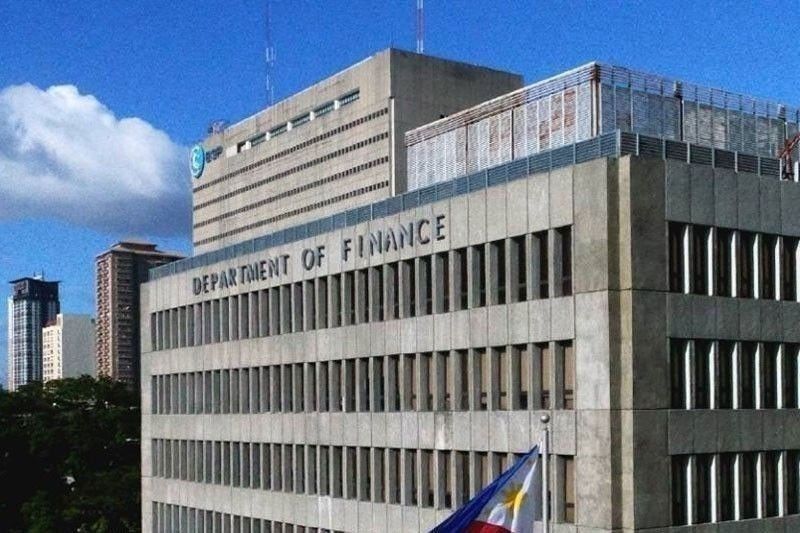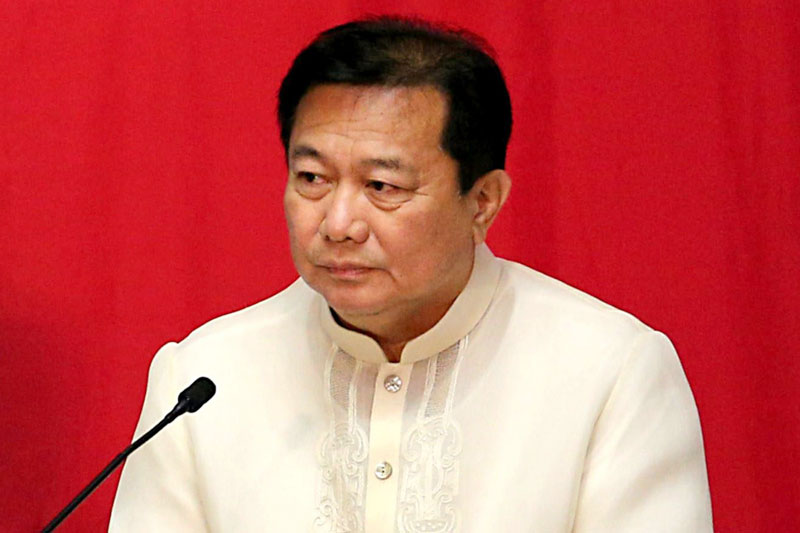DOF says P660 billion spent for COVID-19 pandemic

MANILA, Philippines — The government has reported spending P660 billion on efforts to contain the spread of COVID-19, amid allegations that it is underspending.
Finance Secretary Carlos Dominguez III yesterday told The STAR he did not deny the claim that the government is underspending.
“We never denied the underspending, but we put the amount in perspective [that the] P6 billion is one percent of total releases for COVID-19 response,” Dominguez said.
Senators Panfilo Lacson and Vicente Sotto III claimed the government has yet to spend at least P6 billion in Bayanihan funds. The lawmakers, who last week announced they would be running for the highest positions next year, said they want Congress to look into this supposed underspending.
Based on records from the Department of Budget and Management (DBM), the government has obligated nearly 93 percent or P364.64 billion of the P393.62-billion Bayanihan 1 funds. The first stimulus package expired in June last year.
On the other hand, the Bayanihan 2 expired on June 30 without extension, leaving some P6.48 billion in unspent funds as of June 25.
According to DBM data, the government has obligated more than 95 percent or P135.1 billion of P141.59 billion in special appropriations under the second stimulus package.
At a meeting with Cabinet officials last Saturday, President Duterte said Congress should believe data disclosed by Dominguez in terms of spending for COVID-19 measures.
At the same meeting, Dominguez said the government allocated P45 billion in the 2021 budget for the purchase of vaccines to immunize the population. Authorities plan to vaccinate at least 70 percent of Filipinos by the end of the year to achieve herd immunity.
According to Dominguez, 70 million doses are expected to arrive in the country by the third quarter, while another 55 million shots are scheduled to come in by the fourth quarter.
Based on Bloomberg’s vaccine tracker, the Philippines has administered complete doses to 4.4 percent of the population as of Monday.
Wrong information
In separate statements, Sotto and Lacson stressed they were not only referring to the undisbursed funds in the Bayanihan laws but also to the national budget.
Sotto said some people probably whispered the “wrong information” to Duterte.
“In this administration, it (underspending in the national budget) was something over P200 billion unused, not just the Bayanihan,” Sotto told reporters in an online press conference after the opening of session of the third regular session of Congress.
He said the Senate committee of the whole that he chairs can still look into the issue as the panel, which has been conducting inquiries on COVID-related matters, remains “live.”
Lacson said upon research on the matter, he found out that there was actually some P63 billion in underspending under the Bayanihan 2 or Republic Act 11494.
“Filipinos whose lives and livelihoods were affected by the pandemic have been hit with a double whammy as much-needed aid did not reach them,” he said, referring to the impact of the underspending, P46.397 billion undisbursed and P17.273 billion unobligated.
“We should keep in mind that underspending is determined not by fund releases but by obligations and disbursements. And based on my research, is there underspending? Yes!” Lacson said in an interview on Radyo 5.
Obligation is a commitment by a government agency arising from an act of a duly authorized official, which binds the government to the immediate or eventual payment of a sum of money, he said.
The agency is authorized to incur obligations only in the performance of activities in pursuit of its authorized functions and programs.
“Thus, funds are deemed obligated when the contracts for the projects have been signed. Funds are deemed disbursed when the funds are actually paid to the suppliers,” Lacson said.
Underspending defined
He pointed out the release of the budget by the DBM to the agencies concerned is not a determinant of underspending, because the funds remain with the agencies and not yet to the intended beneficiaries. Instead, he said underspending should be based on obligations and disbursements.
“Releasing the funds is a step toward spending but it is not spending itself. Just because the DBM released the funds does not mean the funds are spent. If the implementing agencies that got the funds from the DBM are incompetent, the funds won’t reach the beneficiaries,” he said.
“The bad thing is that Bayanihan 2 already expired last June 30. Those who were denied the funds will no longer get aid unless a new law can be passed,” he added.
Citing latest data from the DBM, Lacson said that of the P205.117-billion allotment under Bayanihan 2, agencies incurred an obligation of P187.844 billion, or an obligation rate of 91.58 percent. But only P141.447 billion was disbursed, for a disbursement rate of 75.30 percent and 24.7 percent has not been disbursed.
The figure can be considered huge underspending, with P46.397 billion undisbursed and P17.273 billion unobligated, he said.
He said such underspending of the Bayanihan 2 funds had denied much-needed assistance to many Filipinos whose lives and livelihood were affected by the pandemic.
These include those undergoing the “online learning program” of the Department of Education, as well as public utility vehicle drivers.
“If the money was not fully disbursed, the affected Filipinos suffer because they are denied the aid meant for them,” Lacson said. “It is a disservice to many, to say the least.”
Meanwhile, the Department of Social Welfare and Development (DSWD) promised emergency cash aid to individuals and families affected by the localized heightened lockdowns in the Visayas and Mindanao.
The DSWD said it was working with the Department of the Interior and Local Government (DILG) and the Department of National Defense for the distribution of the cash aid after signing the implementing guidelines for the project last July 25.
The DSWD will tap its Assistance to Individuals in Crisis Situation program funds for the purpose.
The affected families are in Iloilo City, Cagayan de Oro City and Gingoog City in Misamis Oriental.
Each individual will receive P1,000, or a maximum of P4,000 per family. – Paolo Romero, Rainier Allan Ronda
- Latest
- Trending






























